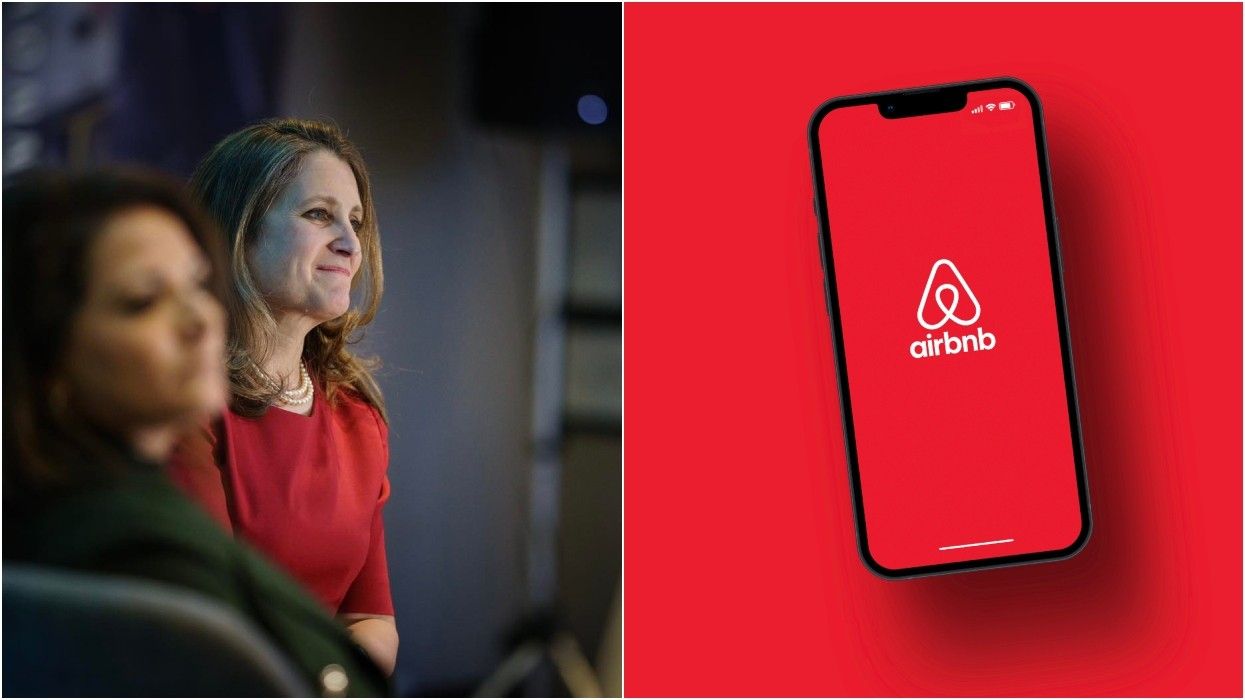The jury is still out on whether British Columbia's recently announced actions against illegal short-term rentals will have their desired effects, but it's now received a big endorsement from Minister of Finance and Deputy Prime Minister Chrystia Freeland, who says the federal government is following suit.
At a joint press conference with Minister of Innovation, Science, and Industry François-Philippe Champagne and Treasury Board President Anita Anand on Tuesday, Freeland announced that she was designating the Ombudsman for Banking Services and Investments (OBSI) as the single external complaints body for Canada's banking sector.
She then closed her remarks by shouting out British Columbia.
"I also want to quickly address the BC government's new legislation to regulate the short-term rental market," said Freeland. "This is a positive and important step in the right direction, in an area of provincial jurisdiction."
Freeland then said what many governments around the world have said: short-term rentals need to be converted into long-term rentals.
"We know that short-term rentals through sites like Airbnb and Vrbo mean fewer homes for Canadians to rent and live in full-time, especially in urban and populated areas of our country," she said. "That is why our government is actively examining what options and tools exist at the federal level, to ensure more short-term rentals are made available as long-term rentals — as permanent homes — for Canadians to live in."
Freeland concluded by saying that the Government of Canada will have more to announce in the weeks to come.
The War On Short-Term Rentals
A day prior to Freeland's comments, the Province of British Columbia announced the Short-Term Rental Accommodations Act, which included a suite of actions such as creating a provincial registry for platforms and hosts, increasing fines for infractions, and requiring platforms to share more data.
With the announcement, BC joined a growing list of governments around North America that are cracking down on short-term rentals in the name of alleviating pressures on their respective housing markets. That list includes Barcelona, Vienna, and New York City, among others. In Canada, both Quebec and Halifax recently announced actions as well.
It's unclear what the Government of Canada can really do, however, as short-term rentals are an area of provincial jurisdiction, rather than federal jurisdiction — a reality Freeland acknowledged on Tuesday. Despite that, Freeland said housing is such a big issue that the federal government is looking at everything.
"It is so important that we are examining whether there are any tools in the federal jurisdiction that we could use, that would make a difference in this space," Freeland said. "And the reason we're so focused on it is we really do understand that housing is a very challenging issue for Canadians, and we believe that the core challenge is that there just aren't enough homes available for people to buy or for people to rent, so we're reviewing the space and we're thinking 'what can we do in both the medium-term and immediately to relieve some of the pressure."
She went on to cite an estimate that 30,000 units of housing could be added back to the market in just Vancouver, Toronto, and Montreal if action were to be taken.
"That would make a big difference," she said. "And that's why, recognizing — as we do — that this is in provincial jurisdiction, we are taking a very careful look at whether there are any tools in the federal toolbox we could use as well. But if other provinces want to follow BC's lead, that would be great for Canadians, too."





















